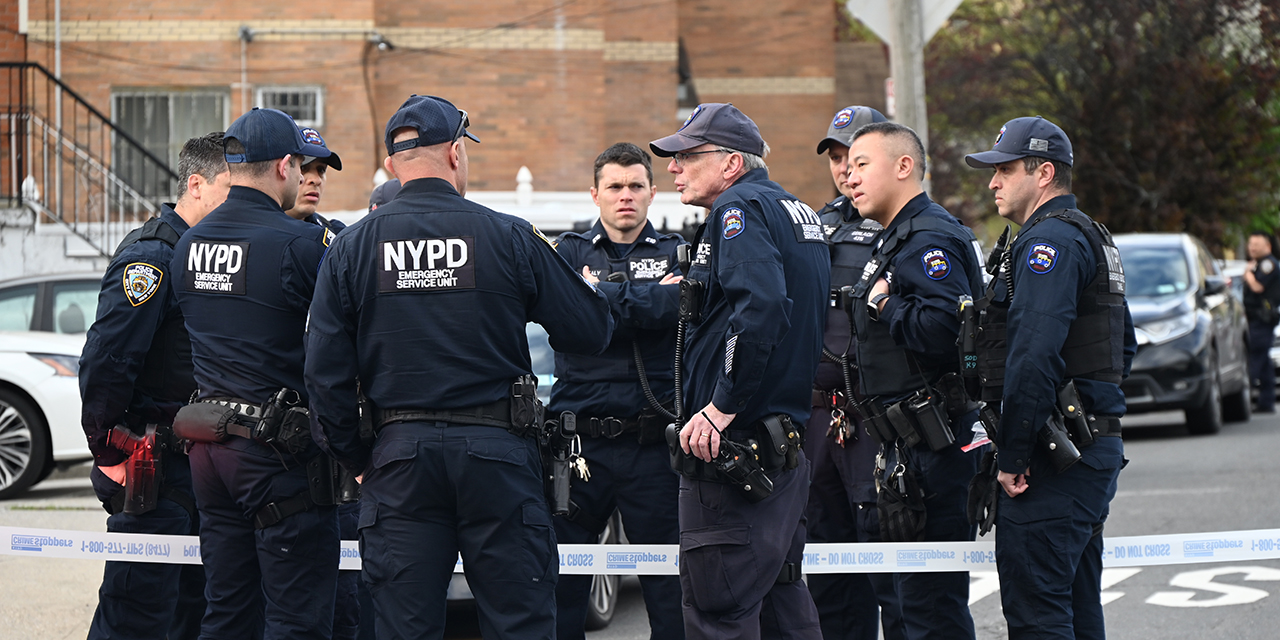On Thursday of last week, Shelby County District Attorney Steve Mulroy, announced that five former Memphis police officers had been indicted on charges—including second-degree murder and aggravated kidnapping—stemming from the death of Tyre Nichols, who was badly beaten by officers on January 7. Nichols succumbed to his injuries three days later.
Friday evening, the city of Memphis released four videos depicting the bloody affair. Prior to the release, officials warned the public to brace itself for the graphic nature of the videos. That warning was accompanied by pleas, including from the family of Tyre Nichols, that any protests in response to the incident remain peaceful.
Reactions to the video have been universal in their denunciation of the conduct of the police officers—all black, as was Nichols. In addition to the excoriations of the officers by police critics, police departments, executives, and union representatives from across the country unambiguously expressed their disapproval. The Major City Chiefs Association referred to the actions of the Memphis officers as “unconscionable.” The Fraternal Order of Police’s president, Patrick Yoes, denounced the incident as “a criminal assault under the pretext of law.” NYPD Commissioner Kechant Sewell described the Memphis officers’ conduct as “disgraceful.”
After having watched the videos myself, I agree—who wouldn’t? What I saw was a legally unjustifiable beating handed out by hotheads who wanted revenge for having been given a hard time. After the initial encounter with Nichols (from which he escaped), bodycam footage shows one officer say to another that Nichols “made me [pepper] spray myself.” The officer whom he spoke with seemed also to be agitated at having had his glasses knocked off during the initial struggle, saying—after hearing over the radio that others had caught up with Nichols—“I hope they stomp his ass.” Another officer involved seemed upset about hurting his leg. None of these things excuses kicks to the head, punches to the face, or baton strikes doled out to a man who was no longer resisting.
The swift termination, arrest, and indictment of the officers involved in the Nichols incident comports with the outrageous nature of the conduct depicted in the videos released to the public. But for some, it won’t be enough that these actions met with universal outrage and both administrative and legal enforcement actions. “We need to show the world what lessons we can learn from this tragedy,” District Attorney Mulroy said during the press conference in which the charges were announced. But perhaps the lesson is simply this: policing is a human endeavor and is therefore subject to the shortcomings of the human condition, which means that some people, cops included, will sometimes act out of malevolence. For some police critics, this reality is unsatisfactory. Congresswoman Alexandria Ocasio-Cortez, for example, decried via Twitter “[t]he effort to separate the officers who murdered Tyre Nichols from the system of policing that produced them.” As such, tweeted the congresswoman from New York, “Charges alone aren’t justice. Change is.”
Two things are worth remembering here. The first is that, over the last two years, policing has seen considerable change. In April 2021, the New York Times reported that 30 states had enacted more than 140 police reform measures in the year following George Floyd’s murder by a Minneapolis police officer. City councils and police departments, including in Memphis, enacted reforms of their own. According to a Memphis government website, reimagine.memphistn.gov, Memphis police department policy was already (before the encounter with Nichols) aligned with the policy recommendations of the “8 Can’t Wait” reform campaign that went viral in 2020. Those policies prohibit the use of “choke” and “strangle” holds, as well as shooting at moving vehicles (except when deadly force is authorized). They also require officers and/or departments to de-escalate; give warnings and exhaust all alternatives before shooting; comprehensively report uses of force; develop a use-of-force continuum; and intervene when fellow officers use excessive force.
The second thing to remember is that there is at least one good reason to separate the officers who beat Nichols from the institution in which they served: their actions constitute a departure from the norm. As I have written before, deadly “police violence,” contrary to the dominant narrative spun by AOC and other anti-law-enforcement critics, is statistically rare. According to data compiled by Police Scorecard—a website built by left-wing police critic Samuel Sinyangwe—Memphis police have been involved in 25 killings (mostly justified) between 2013 and 2021, a period in which Memphis police officers made some 288,706 arrests (to say nothing of other encounters such as traffic and pedestrian stops). A 2018 study of both deadly and non-deadly force found that over a two year period in which officers across three police departments fielded over a million calls for service, police made 114,000 arrests and used force of any kind in less than 1 percent of these.
The deplorable actions depicted in the Memphis videos are simply not representative of policing as an institution. As such, we should resist calls to repeat the mistakes of 2020—making rash policy choices that may harm public safety.
The post-Floyd era has been marked not just by a sharp leftward turn on the policing and criminal-justice policy front but also by sharp rises in serious crime and disorder. And while we can be sure that much commentary will focus on the role that race plays in incidents of police abuse, it’s worth remembering that black Americans have borne the brunt of rising crime, including violent crime, since 2020. Having set an all-time record for homicides in 2021, residents of Memphis know this all too well.
Photo by Joe Raedle/Getty Images




